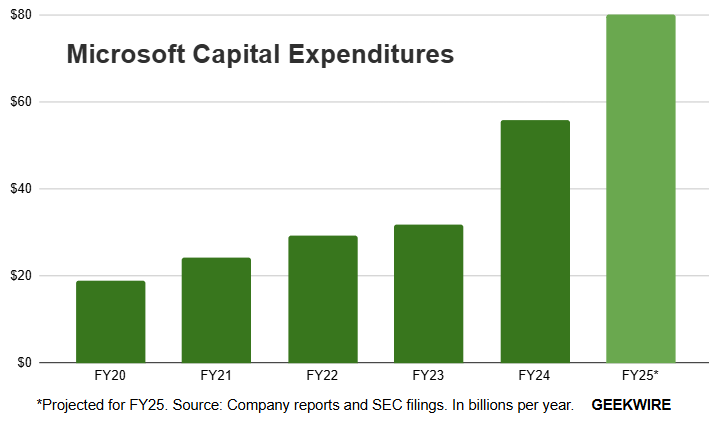
04 01, 2025
Barnes & Noble sells ‘a better book’ than Amazon: CEO credits bookstore experience at revived chain
Barnes & Noble went from near-bust to back in action and the CEO of the nation’s largest remaini...
Read More

05 Jan, 2025
The United States needs an overarching national strategy to ensure it prevails in the global AI race — focusing on R&D funding, education, and workforce development, and ensuring that American tech companies aren’t slowed down by “heavy-handed regulations,” Microsoft President Brad Smith writes in a post today.
The post comes on the first day of the new Congress in Washington, D.C., and two weeks before the start of President-elect Donald Trump’s second term.
“In many ways, artificial intelligence is the electricity of our age, and the next four years can build a foundation for America’s economic success for the next quarter century,” Smith writes, describing it as a “golden opportunity.”
The post, which focuses in part on the competitive threat posed by China in artificial intelligence, also looks to underscore Microsoft’s role in advancing AI development.
Describing the company’s efforts, Smith confirms that Microsoft will spend $80 billion on datacenters to train and deploy AI this fiscal year, which began in July.
This capex number is getting lots of attention, but it’s not a huge surprise. Microsoft reported $20 billion in capital spending in the first fiscal quarter of 2025, ending in September, and CFO Amy Hood said at the time that the investment would increase sequentially in the second fiscal quarter, before eventually trending down.

In his post today, Smith notes that more than half of the spending will be in the U.S.
Smith writes that success in AI will require collaboration among leaders in the U.S. government, the private sector, education, and non-profits,
He points to China’s advancements in AI, crediting its rapid progress in part to substantial government investments and a cohesive national strategy. Smith notes that China is seeking to position itself as a global leader in AI, leveraging its large population, extensive data resources, and strategic focus on technology innovation.
Every general-purpose technology creates new opportunity across the economy. But it requires companies and countries to invest in new infrastructure and equip people with the right skills. And that’s what we are doing in this AI era, starting in the US. https://t.co/7LjGJlBgxW
— Satya Nadella (@satyanadella) January 3, 2025
Smith cites the precedent of China’s prior investments in 5G wireless infrastructure, and the security issues that subsequently arose for the U.S. from the spread of Huawei’s 5G products around the world.
Similarly, he writes, one key now is to ensure that American AI is adopted globally.
“American products are more trusted than their Chinese counterparts, and our private sector is unmatched in its ability to invest in infrastructure around the world,” he writes, connecting the issue to the debate over tariffs: “With a balanced and common-sense approach to export control policy, the United States can solidify the diplomatic relations that will be critical to global AI adoption.”
Read Smith’s post here.